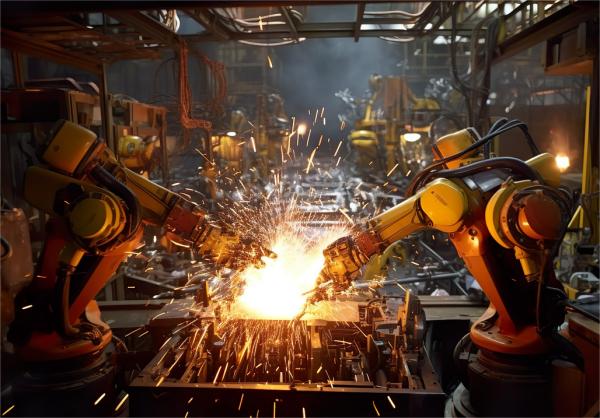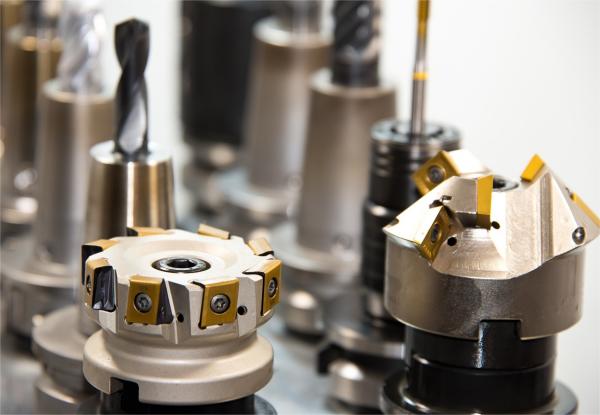- Home
- News
- The Role Of Industrial Lenses In The Industrial Field And Their Application In Industrial Inspection
The Role Of Industrial Lenses In The Industrial Field And Their Application In Industrial Inspection
As we all know, industrial lenses are mainly lenses used in the industrial field. They play an important role in the industrial field and provide important visual support for industrial production and monitoring.
Let’s take a look at the specific role of industrial lenses in the industrial field.
1、The main role of industrial lenses in the industrial field
Role 1: Get image data
Industrial lenses are mainly used to obtain image data in the industrial field. They can focus the light in the actual scene onto the camera sensor to capture and record images.
By appropriately selecting industrial lenses with different parameters such as focal length, field of view, and aperture, the required field of view and image details can be obtained.
Role 2: Image analysis and processing
Industrial lenses, combined with image processing software, are mainly used to analyze and process images obtained from cameras. They can provide high-quality images with high resolution, low distortion and low dispersion, enabling image processing algorithms to perform tasks such as object detection, measurement and identification accurately and reliably.
Among them, the quality of industrial lenses is crucial to the accuracy and reliability of image analysis.
Role 3: Monitoring and judging quality
In automated quality control systems in industrial production lines, industrial lenses play an important role in monitoring and judgment. They are able to capture subtle imperfections, deviations and imperfections on the product surface.
By combining with image processing algorithms, products can be accurately detected and analyzed to ensure that product quality meets requirements.
Industrial production automation control
Role 4: Automated control
Industrial lenses are used together with machine vision systems to achieve automated control. For example, in industrial robots or automated production lines, industrial lenses can be used to identify and locate objects, enabling precise automated grabbing, assembly, and packaging operations.
The high performance and reliability of industrial lenses are crucial to the accuracy and efficiency of automated control.
2、Specific applications of industrial lenses in industrial inspection
Industrial lenses are widely used in the field of industrial inspection, covering almost all aspects of product quality control:
1) For surface defect detection
Industrial lenses can be used to detect defects on product surfaces, such as scratches, dents, bubbles, impurities, etc. Through high-resolution image capture and image processing technology, industrial lenses can accurately identify and record these defects to ensure product quality.
2) Carry out defect classification and grading
Industrial lenses can capture images of products and transmit them to image processing systems for analysis and classification. According to preset standards and algorithms, the system can automatically identify different types of defects and classify them for subsequent processing and decision-making.
3) Used for product dimensional measurements
Industrial lenses, combined with corresponding measuring systems, can be used to accurately measure the size, shape and position of products. This kind of measurement is usually based on image processing technology, using the image captured by the lens to perform edge detection, contour extraction and other operations, and finally achieves automated measurement of product size.
4) For surface quality assessment of products
For products that require specific surface quality, such as glass, metal, plastic, etc., industrial lenses can be used to evaluate the surface finish, gloss, flatness and other parameters to ensure that the product meets the specified quality standards.
Product quality assessment
5) For product identification detection
In industrial production, products are usually marked with information such as identification codes, serial numbers or barcodes to facilitate tracking and management. Industrial lenses can be used to detect and identify these markings, ensuring they are clearly visible and accurate.
6) For product assembly and alignment
On the product production and assembly line, industrial lenses can be used to check and adjust the position and alignment of parts. By taking and analyzing images of components, the system can promptly detect and correct deviations and errors in the assembly process, thus ensuring the overall quality of the product.
Final Thoughts:
If you are interested in purchasing various types of lenses for surveillance, scanning, drones, smart home, or any other use, we have what you need. Contact us today to learn more about our lenses and other accessories.

